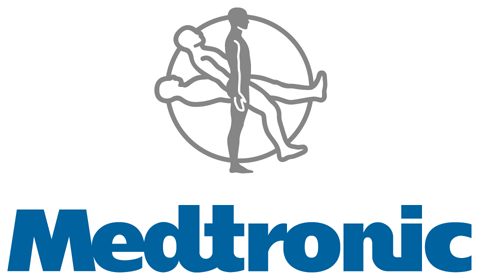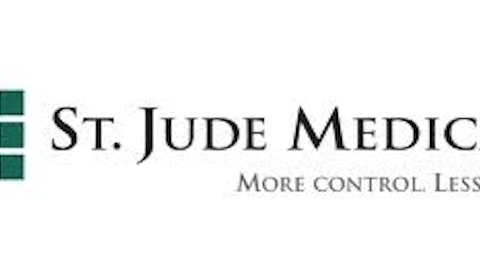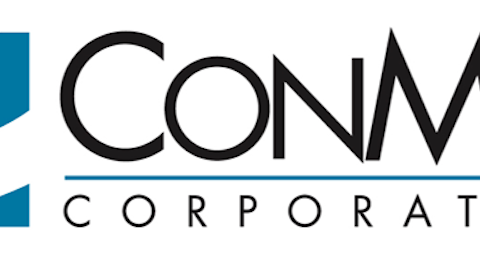In the medical technology industry, there is a clear divide between software and hardware. Whereas software solutions like EHR (electronic health record) products are gaining ground in the market, medical devices have been slipping due to increased competition and pricing pressure. The federal government is also encouraging more spending on health care IT products while reducing bills for medical devices and services.
One business that is being affected by these changes is the cardiac device industry, in which Medtronic, Inc. (NYSE:MDT) is a market leader.

A flat first quarter
Shares of Medtronic, Inc. (NYSE:MDT) have slumped 6% over the past month after first-quarter earnings disappointed investors. Sales from its cardiac rhythm disease management segment, which accounts for 29% of its top line, posted flat growth from the prior-year quarter due to stagnant sales of pacemakers.
Medtronic, Inc. (NYSE:MDT)’s total revenue inched up 2% to $4.08 billion, missing the consensus estimate of $4.11 billion. The company’s bottom line grew an adjusted 4% to an $0.88 per share, matching analyst estimates. In addition to its core CRDM segment, Medtronic produces other heart and spinal products, as well as various types of surgical equipment, diabetes supplies, and neuromodulation products.
Expanding to grow its top line
To spur its stagnant top-line growth, Medtronic, Inc. (NYSE:MDT) announced that it would acquire telehealth company Cardiocom for $200 million in mid-August. Cardiocom’s main products are remote patient monitoring devices that alert health care professionals if medical problems occur, and telehealth services for remote health care applications.
The acquisition was surprising for two reasons: Cardiocom is considered a health care provider rather than a device maker like Medtronic, and Cardiocom only generates $40 million to $50 million in annual revenue. Although the acquisition is a small one for a company that has $2.46 billion in cash and equivalents, it raises questions as to Medtronic, Inc. (NYSE:MDT)’s future — does it intend to remain a medical device maker, or does it plan to diversify into other health care areas?
To find the answer, we need to look at the challenges that two other companies, DaVita HealthCare Partners Inc (NYSE:DVA) and Fresenius Medical Care AG & Co. (ADR) (NYSE:FMS), have been facing.
The fear of reimbursement decreases
In a previous article, I discussed a major roadblock facing DaVita HealthCare Partners Inc (NYSE:DVA) and Fresenius Medical Care AG & Co. (ADR) (NYSE:FMS), the two largest kidney care companies in America — the U.S. Medicare proposal to reduce payments for dialysis services by 9.4% in 2014. That reduction was much steeper than the 4% to 5% that Wall Street had anticipated, and shares of DaVita and Fresenius have respectively declined 13% and 4% over the past three months as a result. DaVita has been hit much harder since its business is almost entirely domestic in comparison to Fresenius, which has diversified operations across the globe.
While Medicare cuts for cardiology services have been ongoing, they haven’t directly targeted cardiac device makers like Medtronic yet. Heart disease costs the U.S. health care system approximately $40 billion annually, however, and medical devices are often the heaviest weight on the bottom line of hospitals — making them a likely candidate for a big budget cut in the future.
Therefore, it’s clear that Medtronic believes that it’s better to be safe than sorry. Diversifying into the telehealth industry closely resembles DaVita HealthCare Partners Inc (NYSE:DVA)’s diversifying acquisition of provider group Healthcare Partners last year.
The fear of additional Sunshine
Another major concern for device makers is the Sunshine Act, which will require device makers to disclose their payments to physicians. The Sunshine Act is intended to eliminate kickbacks that encourage physicians to promote one company’s devices over competing products. Although device makers fear the implications of the Sunshine Act and its effect on customer loyalty, several companies have already been accused of engaging in more unscrupulous practices.





